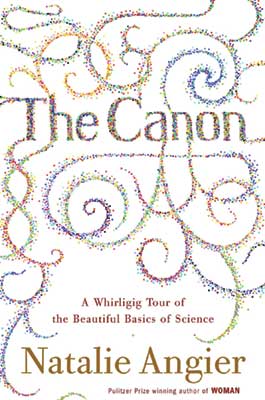
Once, while writing a story on whale genetics, Natalie Angier was asked by an editor to confirm that a whale is a mammal, and that a mammal is, in fact, an animal. That was the last straw for Angier, one of America’s preeminent science writers, who has watched with dismay as our collective scientific literacy has shriveled into oblivion. Back when we had the space race, Sputnik, and punch-card computers, science seemed important, even cool. Today, American adults know less about biology than their counterparts 200 years ago.
We may not rotate our own crops anymore, but scientific know-how is still a vital part of our lives, argues Angier. And she sets out to prove it: With the help of hundreds of scientists, she tackles chemistry, physics, astronomy, and other fields a chapter at a time, offering practical yet whimsical tutorials that make the “invisible visible.” We learn that proteins look like “origami animals made of butter and clay,” the Earth’s mantle resembles Silly Putty, and tectonic plates grow at the same speed as our fingernails. All this is meant to dispel the “myth of the rare nerd,” the idea that scientific curiosity belongs only at grade-school science fairs or locked away in laboratories.
Angier makes nerdiness fun but also points out that scientific literacy is serious business. Debates about stem cells, global warming, and alternative energy might be less contentious if the scientific issues behind them were better understood. Some of her proposals are truly radical, such as the idea that the word “theory” should be booted from the scientific lexicon, given how the phrase “evolutionary theory” has been deliberately twisted by creationists. But such measures wouldn’t be necessary in a nation that knew the difference between science and bunk.
















